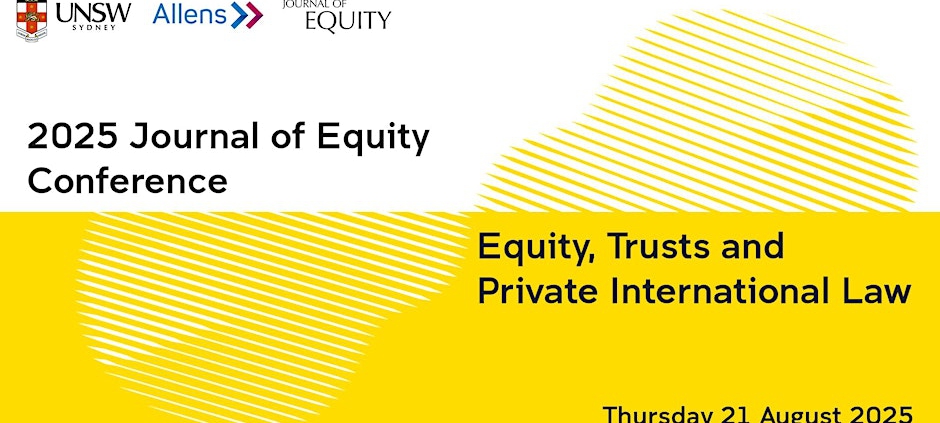Views
Under the Omnibus: Corporate Sustainability Due Diligence Directive’s rules on civil liability no longer overriding mandatory
The European Commission’s recent Omnibus proposes a significant change to the Corporate Sustainability Due Diligence Directive (CSDDD). Article 29(7) of the original CSDDD requires Member States to implement its rules on civil liability rules so that these rules apply as overriding mandatory provisions, if the law applicable to the claim is not a law of a Member State. The Omnibus package proposes to delete art. 29(7) CSDDD. As a result, Member States will no longer be obliged to implement CSDDD’s rules on liability as overriding mandatory provisions. Read more
Charuvila Philippose v. P.V. Sivadasan: Harmonizing India’s Civil Procedure Code and the Hague Service Convention
Written by George Jacob, Incoming Associate, Bombay Law Chambers
Globalisation has led to a rise in cross-border disputes, making international service of summons increasingly relevant. While domestic service in India is straightforward, sending summons to foreign defendants involves complex legal procedures. Proper service ensures that the defendant is duly notified and can respond, embodying the principle of audi alteram partem. Until recently, the procedure for international service in India was unclear. This ambiguity was addressed by the Kerala High Court in Charuvila Philippose v. P.V. Sivadasan.[1] This blog outlines the legal frameworks for international service, revisits the earlier Mollykutty[2] decision, and analyses the broader implications of Charuvila Philippose. Read more
Foreign Judgments and Indirect Jurisdiction in Dubai (UAE): One Step Forward, One Step Back?

I. Introduction:
In 2024, the Dubai Supreme Court rendered a significant decision on the issue of indirect jurisdiction under UAE law. Commenting on that decision (see here), I noted that it offered “a welcome, and a much-awaited clarification regarding what can be considered one of the most controversial requirements in the UAE enforcement system” (italic in the original).
The decision commented on here touches on the same issue. Yet rather than confirming the direction suggested in the above-mentioned decision, the Court regrettably reverted to its prior, more restrictive approach. This shift raises doubts about whether a consistent jurisprudence on indirect jurisdiction is taking shape, or whether the legal framework remains fragmented and unpredictable.
News
Report on the 2025 Journal of Equity Conference – Equity, Trusts and Private International Law
On 21 August 2025, the UNSW School of Private and Commercial Law, the Journal of Equity and Allens jointly hosted the 2025 Journal of Equity Conference. This year’s one-day Conference focused on important questions at the intersection of equity, trusts and private international law. It featured four papers delivered by judges and scholars, each of which was followed by ample time for insightful questions and discussion among over 30 judges, lawyers and scholars attending the office of Allens in (rainy) Sydney.
New Editor
We are delighted to announce another addition to our Editorial Board: Elsabe Schoeman.
Elsabe has long been one of the leading scholars of private international law in South Africa, having authored countless publications in the areas of jurisdiction in cross-border commercial litigation and choice of law in contract, delict/tort and selected areas of family law, with a recent focus on access to justice for victims of human rights infringements and environmental torts. She has also advised a variety of law commissions and private law firms on these topics.
Elsabe has just left the office of Dean of the Faculty of Law at the University of Pretoria and will be focusing her work for the blog on legal developments in South Africa.
Case note on Oilchart International v. Bunker Nederland BV
Vesna Lazic (Asser Institute, Utrecht University) has published an interesting case note on the complex case of CJEU Judgment C-394/22 Oilchart International NV v O.W. Bunker Nederland BV, ING Bank NV in Revue de Droit Commercial Belge. This case dealt with the interaction between the Brussels I-bis Regulation and the Insolvency Regulation. You can read it here: 2025 Note rdc_tbh2025_2p308 .
In this case, the Court held that:
Article 1(2)(b) of Regulation (EU) No 1215/2012 of the European Parliament and of the Council of 12 December 2012 on jurisdiction and the recognition and enforcement of judgments in civil and commercial matters, must be interpreted as not applying to an action brought in a Member State against a company seeking payment for goods delivered which does not mention either the insolvency proceedings opened previously against that company in another Member State or the fact that the claim was already declared in the insolvency estate.




